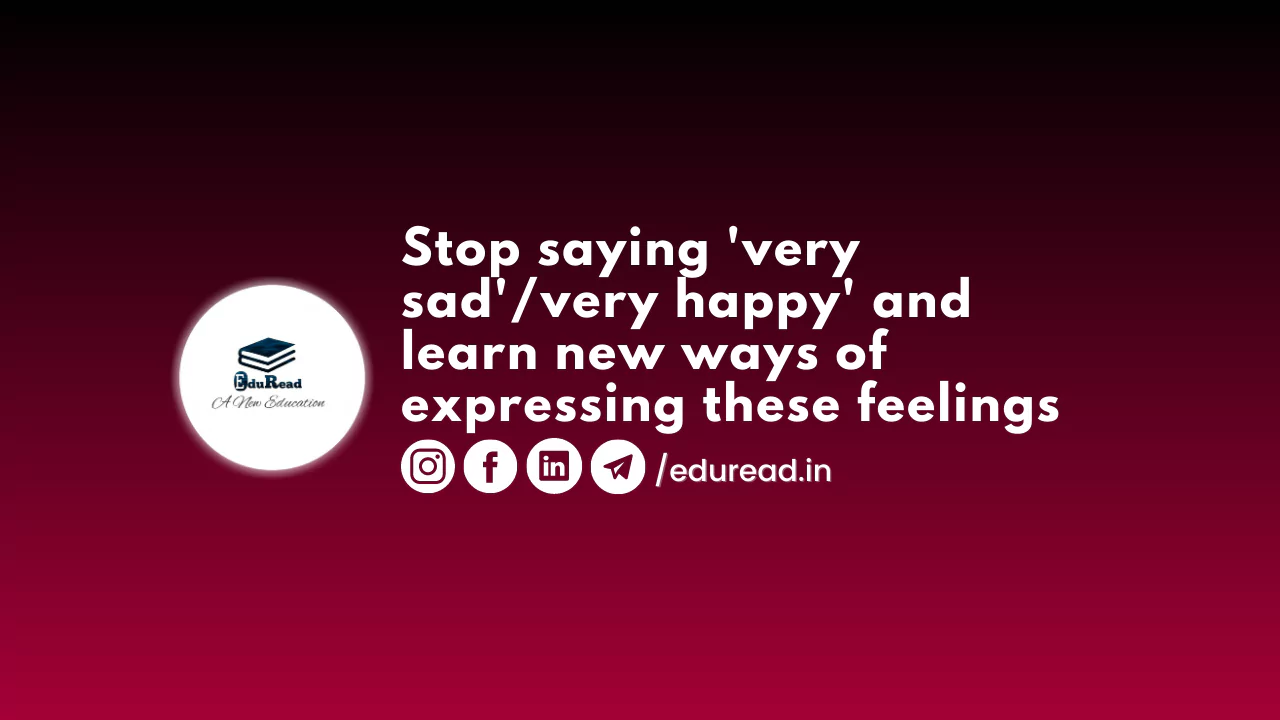When we try to describe our emotions, we often resort to using the words “very sad” or “very happy.” While these words may be accurate, they lack the descriptive power needed to fully express how we’re feeling. In this blog post, we’ll explore some new ways of expressing these emotions to add depth and nuance to our language.
Why You Should Stop Saying “Very Sad” or “Very Happy”
The first step in learning new ways to express our emotions is understanding why we should stop saying “very sad” or “very happy.” These words are generic and overused, which can make our language feel flat and uninteresting. By expanding our emotional vocabulary, we can add depth and complexity to our communication and better connect with others.
New Ways to Express Sadness
- Heartbroken
- Devastated
- Grief-stricken
- Miserable
- Despondent
- Melancholy
- Sorrowful
- Blue
- Wistful
- Dismayed
Using one of these words instead of “very sad” will give your language more color and make it easier for others to understand exactly how you’re feeling.
New Ways to Express Happiness
- Overjoyed
- Ecstatic
- Thrilled
- Delighted
- Enchanted
- Elated
- Blissful
- Jubilant
- Grateful
- Content
Using these words to express your happiness will help you connect with others more effectively and convey the full range of your emotions.
Tips for Incorporating New Words into Your Vocabulary
- Read Widely: Reading widely will expose you to new words and phrases that you can incorporate into your vocabulary.
- Keep a Journal: Keeping a journal will allow you to practice using new words in context and track your progress over time.
- Use a Thesaurus: Using a thesaurus can help you find new words that express your emotions more accurately.
- Watch TV Shows and Movies: TV shows and movies can be a great source of new words and phrases, especially if you’re trying to learn conversational English.
- Practice with a Language Partner: Practicing with a language partner can help you incorporate new words and phrases into your everyday conversations.
By incorporating these tips into your daily routine, you can quickly expand your emotional vocabulary and stop saying “very sad” or “very happy” once and for all.
Conclusion
Using the same words to describe our emotions can make our language feel flat and uninteresting. By learning new ways to express our emotions, we can add depth and nuance to our communication and better connect with others. Use the list of words provided in this blog post, as well as the tips for expanding your vocabulary, to add color and complexity to your language.
Follow Us for more such content to improve your speaking skills:
To know more, check out here: https://eduread.in/important-adverbs-you-must-know-to-speak-effectively-speak-new-york/
And visit us for more.

